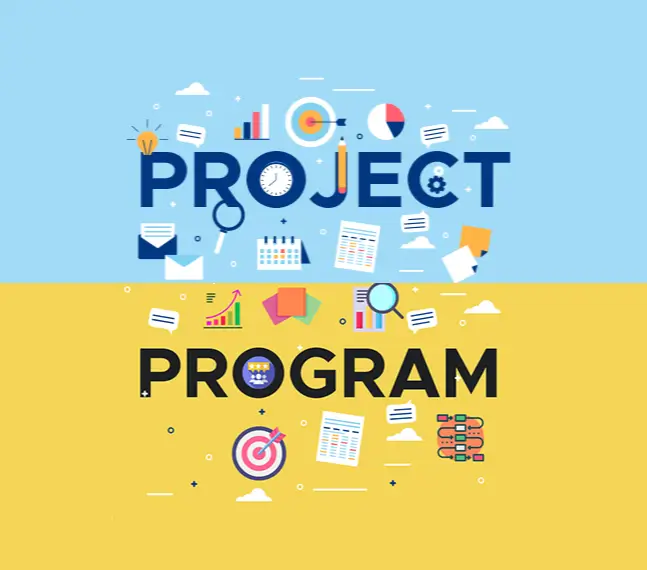
Navigating Success: SAP Project & Program Management for Your Company
Implementing SAP solutions is a complex and critical undertaking for any organization. It requires effective project and program management to ensure a successful and smooth implementation. SAP Project & Program Management is a strategic approach that enables businesses to plan, execute, and control SAP projects, ensuring they are delivered on time, within budget, and aligned with organizational goals. In this article, we will explore the importance of SAP Project & Program Management and how it can drive success for your company.
Understanding SAP Project & Program Management:
SAP Project & Program Management involves overseeing the entire lifecycle of an SAP project, from initiation to completion. It encompasses various activities, including project planning, resource management, risk assessment, stakeholder engagement, and quality assurance. The goal is to effectively manage project scope, timelines, budgets, and deliverables while ensuring alignment with business objectives.
Key Benefits of SAP Project & Program Management:
a. Efficient Project Planning: Effective planning is crucial for SAP projects. Project managers leverage their expertise to define project objectives, create detailed plans, identify dependencies, allocate resources, and establish realistic timelines. This sets a solid foundation for project success and minimizes the risk of delays or budget overruns.
b. Streamlined Project Execution: SAP Project & Program Management ensures that projects are executed according to plan. Project managers coordinate activities, monitor progress, manage risks, and address issues promptly. They facilitate effective communication and collaboration among project teams, stakeholders, and vendors, promoting efficiency and accountability throughout the project lifecycle.
c. Effective Change Management: Implementing SAP solutions often involves significant changes to business processes, systems, and roles. Project managers utilize change management strategies to prepare the organization for these transformations. They assess the impact of changes, develop communication plans, provide training and support, and address resistance to ensure a smooth transition and user adoption.
d. Risk Mitigation and Issue Resolution: SAP projects are not without risks and challenges. Project managers identify potential risks, assess their impact, and develop mitigation strategies. They proactively monitor project progress, identify issues or roadblocks, and take corrective actions to keep the project on track. Effective risk management and issue resolution minimize disruptions and increase the likelihood of project success.
The Role of Program Management:
In complex SAP implementations involving multiple projects, program management becomes crucial. Program managers oversee the coordination, integration, and governance of individual projects within a program. They ensure alignment with organizational objectives, optimize resource allocation, manage interdependencies, and provide strategic direction. Program management enables a holistic view of the overall program and facilitates effective decision-making to drive successful outcomes.
Best Practices in SAP Project & Program Management:
a. Executive Sponsorship: Strong executive sponsorship is critical for the success of SAP projects. Executives provide strategic guidance, secure necessary resources, and champion the project within the organization.
b. Cross-functional Collaboration: SAP projects involve various stakeholders from different departments. Promoting collaboration and communication among business users, IT teams, consultants, and vendors fosters a shared understanding, enhances project outcomes, and minimizes conflicts.
c. Effective Governance: Establishing a robust governance structure ensures accountability, clear decision-making processes, and effective project oversight. Regular steering committee meetings, project status updates, and performance metrics help track progress and address any deviations promptly.
d. Continuous Improvement: SAP Project & Program Management is an iterative process. Emphasize lessons learned and continuous improvement by capturing feedback, evaluating project outcomes, and implementing changes for future projects. This drives ongoing optimization and ensures that each project benefits from past experiences.
Conclusion:
SAP Project & Program Management is a vital discipline that enables organizations to successfully implement and manage SAP solutions. By leveraging effective project planning, streamlined execution, change management, and risk mitigation, businesses can navigate the complexities of SAP implementations and achieve their desired outcomes. Program management further enhances the coordination and governance of multiple projects within a program, ensuring alignment with organizational objectives.
To excel in SAP Project & Program Management, organizations should embrace best practices such as strong executive sponsorship, cross-functional collaboration, effective governance, and a focus on continuous improvement. These principles foster a culture of collaboration, accountability, and innovation, driving successful project outcomes and maximizing the value derived from SAP solutions.
Moreover, it is essential to engage experienced SAP project and program managers who possess deep knowledge and expertise in SAP methodologies, tools, and best practices. These professionals bring valuable insights and guidance to navigate the intricacies of SAP projects, effectively manage risks, and drive successful outcomes.
In conclusion, SAP Project & Program Management plays a pivotal role in the success of SAP implementations. By embracing this strategic approach and following best practices, organizations can ensure that their SAP projects are executed efficiently, aligned with business goals, and deliver tangible benefits. With effective project planning, streamlined execution, change management, and risk mitigation, businesses can overcome challenges and achieve successful outcomes in their SAP journey.
Remember, SAP Project & Program Management is not a one-time activity but an ongoing process that requires continuous monitoring, evaluation, and improvement. By fostering a culture of collaboration, embracing best practices, and leveraging experienced professionals, organizations can navigate the complexities of SAP projects and maximize the value of their investments.
If your company is embarking on an SAP project, consider the significance of SAP Project & Program Management and the benefits it can bring. By investing in robust project and program management practices, you can set the stage for a successful SAP implementation, drive business transformation, and achieve sustainable growth.
In summary, SAP Project & Program Management is a strategic approach that ensures the successful execution of SAP projects. It involves effective planning, streamlined execution, change management, risk mitigation, and continuous improvement. By following best practices and engaging experienced professionals, organizations can navigate the complexities of SAP projects and maximize the value derived from their SAP investments. Embracing SAP Project & Program Management is a key step towards achieving successful SAP implementations and driving business growth.
